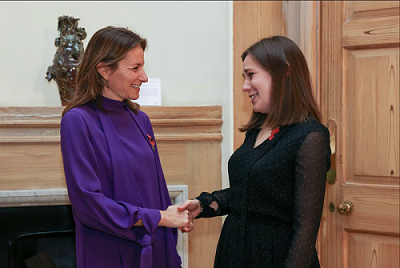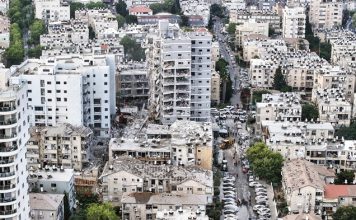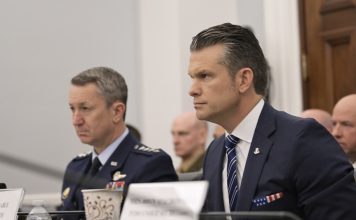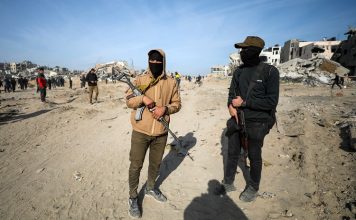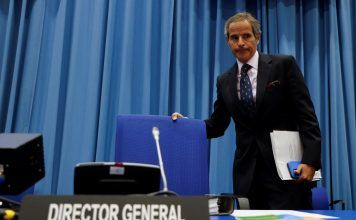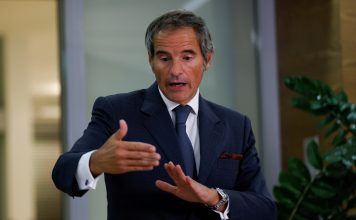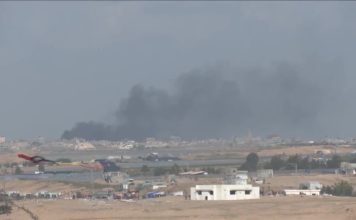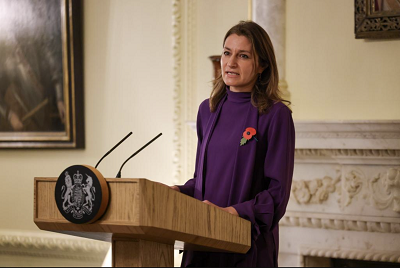
The UK government announced new protections on Oct. 30 for journalists in Britain being threatened by the Islamic Republic in Iran. The measures included an online reporting tool and training for police officers in the UK to safeguard journalists covering protests.
The new protections make up part of the government’s National Action Plan for the Safety of Journalists (NAPSJ), launched in 2021. The revised plan was announced by British lawmaker and UK Secretary of State for the Department for Culture, Media and Sport (DCMS), Lucy Frazer, in an Oct. 30 press release.
The NAPSJ protects all reporters in the UK subjected to online and in-person abuse by state actors, government agents, companies and individuals, for their journalism. The plan also protects journalists who have been forced into unjust legal proceedings intended to silence their reporting, in the form of Strategic Lawsuits Against Public Participation (SLAPPs).
“We also must not overlook the specific threats towards UK-based journalists working for Iran International and their families, in what is a very real act of oppression by the Iranian regime,” Frazer said.
The announcement about the updated plan was followed by a reception hosted by the DCMS at 10 Downing Street on Oct. 30, during Journalism Matters Week, for UK-based journalists and editors.
[aesop_image img=”https://kayhanlife.com/wp-content/uploads/2023/11/Lucy-Frazer-speaking-with-attendees-at-the-reception.png” panorama=”off” credit=”Lucy Frazer speaking with attendees at the reception. ” align=”center” lightbox=”on” captionsrc=”custom” caption=”Image courtesy of the UK Department for Digital, Culture, Media & Sport” captionposition=”left” revealfx=”off” overlay_revealfx=”off”]
However, Iran International’s Lead Media Liaison Adam Baillie told Kayhan Life that none of its journalists or editors had been invited to the event. Additionally, no reporters or editors from Kayhan London and Kayhan Life — several of whom have been targeted by the Iranian regime — received an invitation to the reception.
Deborah Bonetti, the Director of the Foreign Press Association (FPA) in London, who attended the event, told Kayhan Life: “The threats that UK journalists writing about Iran face are really horrible and this plan won’t change that, especially for those who have family and friends back in Iran, who also fall under the regime’s attacks.”
“The Plan is overall a good step forward in protecting journalists against the toxic amount of abuse and intimidation that many of us are subjected to,” Bonetti added.
On whether there were any journalists from foreign media outlets present, Bonetti said: “I didn’t see any other foreign outlet, but then again the FPA was invited and probably – for the DCMS – that ticked that box.”
Journalism Matters Week is an annual campaign started by the News Media Association to raise awareness about the importance of reporting from trusted media outlets.
“Freedom of the press is not actually about media freedom. It is about our freedom. Through your reporting you are protecting the freedom of others,” Frazer said during her speech at the reception. “Your factchecked, legal proofed, thorough work, allows truth to prevail in an increasingly uncertain world. And what you do takes courage.”
Discussing the impact of reporting on the war between Israel and the Iran-backed Hamas militia group, and the global rise in antisemitism and Islamophobia, Frazer said: “Right now, again, our media is shaping our future. I have watched and read those brave, passionate voices who are standing against Hamas and calling out antisemitism. Highlighting the 1,353 per cent rise in antisemitism in London alone.”
“We are also seeing a worrying rise in anti-Muslim hatred,” she added.
Frazer appeared to suggest that a law which threatened press freedom in the UK would be repealed, and that confirmation of the decision would be given during the King’s Speech on Nov. 7, according to an Oct. 31 report by the Daily Mail.
“The Cabinet Minister [Frazer] vowed that Section 40 of the Crime and Courts Act 2013, which was drawn up following the Leveson inquiry, will finally soon be killed off in The Media Bill,” the Daily Mail report said.
The clause could force publishers to pay the legal costs of parties who sue them, even if the publishers win their cases.
The updated plan was welcomed by the National Committee for the Safety of Journalists, a government-established body made up of representatives from government, journalism, policing, prosecution services and civil society.
“The work that journalists do is crucial to our society, and we are delighted that positive steps are being taken to ensure that they are protected. We look forward to working together to ensure that journalists operating in the UK can continue in their vital work of speaking truth to power,” the Committee said in an Oct. 30 statement.
Members of the committee include: the UK Minister for Safeguarding, Sarah Dines; the Head of Newsgathering for the BBC, John Neal; and the UK Bureau Director for Reporters without Borders, Fiona O’Brien. The committee also has seven designated “observers” which include the Director of the Foreign Press Association, Deborah Bonetti and the head of BBC Persian and the BBC World Service, Rozita Lofti.
Iran’s regime has been accused of threatening to assassinate, rape and abduct journalists in the UK reporting on anti-government protests and human rights violations in Iran. Speaking at a press conference for the release of Reporters Without Borders’ (RSF) annual Press Freedom Index on May 3, Rana Rahimpour, a UK-based journalist and former lead presenter at the BBC World Service said: “I was very involved in covering the protests. I then found out through a data analyst that I had been the target of over half a million [online] attacks, including death threats, rape threats, you name it, it was out there.”
Terror threats made against staff at Saudi-backed Iran International forced the news outlet to close its London studios in February, following an admission by the UK’s police force that it could not protect its reporters from harm.
An investigation by Britain’s domestic intelligence agency MI5 and the Metropolitan Police, the details of which were published in November, found that the Iranian regime had tried to assassinate or kidnap 10 British nationals or UK-based individuals in a 10-month period, including several journalists.

